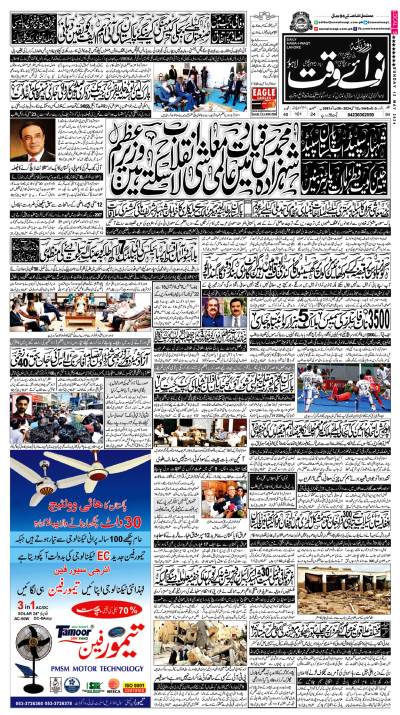ISLAMABAD Pakistan Federal Union of Journalists (PFUJ) on the occasion of World Press Freedom Day released an annual report, which indicates year 2009-2010 was the worst in the history of Pakistani journalism during which as many as 21 journalists lost their lives and more than 45 were wounded at the hands of terrorists and suicide bombers. An overwhelming majority of journalists had to face severe economic stress during that period. Security continues to be one of the most significant challenges for journalists and media personnel throughout Pakistan, particularly in the conflict and insurgency-prone frontier regions. The data on journalists killed and wounded in the line of duty makes a grim reading. Other threats, such as physical intimidation, abduction and constant harassment were other issues. In Pakistans conflict zones, rival groups seek to dictate the content and tone of news coverage. The country lost eight journalists in 2008, while 2009 has been equally grim, it added. Report says, although there was no major act of ban, censorship, suppression or prejudice by the government, there were sporadic incidents of violence, atrocity or harassment against journalists in Balochistan, and some other parts of the country, at the hands of pressure groups or agencies. A marked increased was noted in the occurrence of incidents of torture and altercations, implication in criminal cases and hindrance in discharge of professional duties by terrorist groups and ethnic organisations, it added. A marked increase was also noted in incidents of attacks on media persons by members of various professional organizations, especially doctors and lawyers who have traditionally been very close to the journalists as they belong to an educated class. Report says, at least 600 media workers have been sacked from various channels and newspapers during the period under review, only to save their salaries while their share of responsibilities is shifted on the remaining employees who are subjected to over-work on the same wages. Journalists in Tribal Areas are working in extreme life threatening conditions, but except for some, a large number of them are not being paid salaries by the print media and some of the TV channels. According to local affiliates of the PFUJ, 90pc of tribal journalists are unpaid. The govt and political administration have taken no measures for security and protection of the tribal journalists. A review of the year 2009 suggested that like preceding years, from 1996 to onwards, media persons were continuously denied their lawful benefits by the media owners, including a conductive professional working environment, security of job, wages under a government announced wage board and an unbiased gender policy, and the contract system introduced in media organisations by the media owners for journalists was not abolished, report added.
Monday, May 13, 2024
2009-10 worst year our staff reporter
2:00 AM | May 13, 2024
Pakistan defeats Ireland by seven-wickets in second T20I
11:56 PM | May 12, 2024
Sindh Governor Kamran Tesssori says 'Road to Makkah' project will be successful
3:50 PM | May 12, 2024
Afghan nationals offloaded at Peshawar airport over fake passports
1:34 PM | May 12, 2024
Ex-FATA Khasadars hold protest rally in Jamrud
May 12, 2024
A Global Problem
May 12, 2024
Symbolic Victories
May 12, 2024
Taxing Toxins
May 12, 2024
Stark Hypocrisy
May 11, 2024
Protection For All
May 11, 2024
Data nexus
May 12, 2024
Urban disruption
May 12, 2024
Media representation
May 12, 2024
Data-driven assessments
May 11, 2024
Coastal conservation
May 11, 2024
ePaper - Nawaiwaqt
Advertisement
Nawaiwaqt Group | Copyright © 2024





